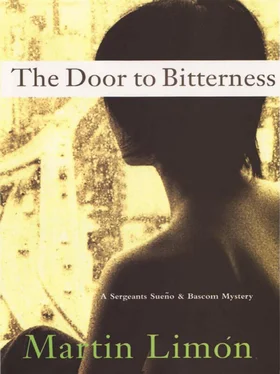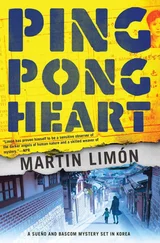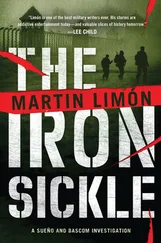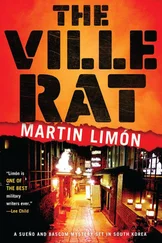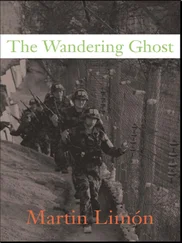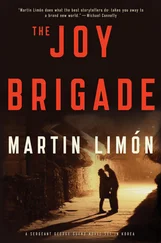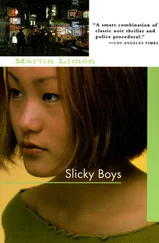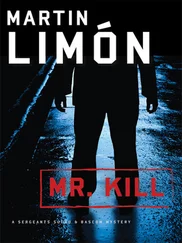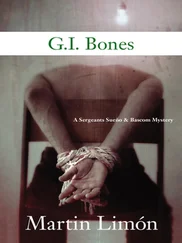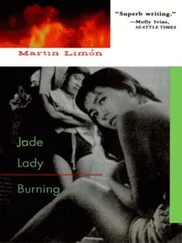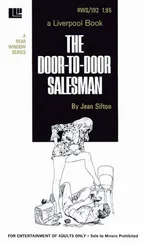Martin Limon - The Door to Bitterness
Здесь есть возможность читать онлайн «Martin Limon - The Door to Bitterness» весь текст электронной книги совершенно бесплатно (целиком полную версию без сокращений). В некоторых случаях можно слушать аудио, скачать через торрент в формате fb2 и присутствует краткое содержание. Жанр: Полицейский детектив, на английском языке. Описание произведения, (предисловие) а так же отзывы посетителей доступны на портале библиотеки ЛибКат.
- Название:The Door to Bitterness
- Автор:
- Жанр:
- Год:неизвестен
- ISBN:нет данных
- Рейтинг книги:4 / 5. Голосов: 1
-
Избранное:Добавить в избранное
- Отзывы:
-
Ваша оценка:
- 80
- 1
- 2
- 3
- 4
- 5
The Door to Bitterness: краткое содержание, описание и аннотация
Предлагаем к чтению аннотацию, описание, краткое содержание или предисловие (зависит от того, что написал сам автор книги «The Door to Bitterness»). Если вы не нашли необходимую информацию о книге — напишите в комментариях, мы постараемся отыскать её.
The Door to Bitterness — читать онлайн бесплатно полную книгу (весь текст) целиком
Ниже представлен текст книги, разбитый по страницам. Система сохранения места последней прочитанной страницы, позволяет с удобством читать онлайн бесплатно книгу «The Door to Bitterness», без необходимости каждый раз заново искать на чём Вы остановились. Поставьте закладку, и сможете в любой момент перейти на страницу, на которой закончили чтение.
Интервал:
Закладка:
Martin Limon
The Door to Bitterness
1
I stood at the mouth of an alley that bled onto the main drag of Itaewon, the red light district of Seoul. Rows of unlit neon spread down the street, still shrouded in pre-dawn shadow. Acid boiled and bubbled against the lining of my stomach, and I felt the familiar nausea of hangover. All routine, even reassuring. Except for the knot on my head. I fingered it gently. About the size of a hand grenade.
My name is George Sueno. I’m an agent for the 8th United States Army Criminal Investigation Division in Seoul, Republic of Korea. Two minutes ago, I’d awoken face down on the pavement.
After struggling to my feet, I tried to figure out what had happened.
I felt my throbbing head, and my hand came away smeared with blood. Thick and purple. My limbs and fingers were all there. It was early September, 1973. I was in a dark alley. Hundreds of empty brown beer bottles in wooden crates, stacked to the height of a man, clinked softly in the early morning breeze.
How did I get here?
The cold breath of autumn bit into my lungs. It was then I sensed the odd lightness, and the glowering sky sucked the breath out of me.
My. 45.
The army-issue pistol I’d been carrying last night. Where was it?
Frantically, I probed beneath my coat and jabbed my fingers into the loose leather of my shoulder holster. Empty. I pulled the inside pocket. Also empty. As empty as a GI’s heart.
Weapon, badge, wallet. Gone!
A cold anguish lumped in the pit of my stomach. Losing my. 45 and my badge, according to the Uniform Code of Military Justice, was a court-martial offense. Korea has total gun control. Only the military and law enforcement are allowed to carry firearms. If the Korean government took gun control seriously, 8th Army took it even more so.
I searched the alley, peering through the dim light, stopping occasionally to toss garbage out of dented cans. In seconds, piles of filth lay on the ground: broken earthenware jars, smeared with the red juice of fermented cabbage-kim-chee reeked. Wadded tissue, clumps of toilet paper, smashed green pop bottles, crushed tins that once contained mackerel pickling in brine. The entire mess emitted a cloud of vile fumes. But no. 45. And no badge of an agent of the 8th United States Army Criminal Investigation Division.
Whoever attacked me cleaned me out. My money, wallet, pistol, badge.
My head throbbed. I tried to concentrate, piecing together fragments. At first nothing came. Alcoholic blackout. Total. And then, without warning, memory flamed to life. A woman walking toward me. Tall. Statuesque. Winding her way through a crowded, smoke-filled nightclub. Staring right at me. Smiling.
It was already late, getting on toward the midnight curfew. Without bothering to ask permission, the smiling woman joined me at a small table shoved against the back wall of the King Club, a dive on the strip.
I had decided to sit at a table alone. All the shouting and drinking and smoking along the bar were too much for me. Staff Sergeant Riley and Ernie Bascom, and a couple of the other guys who worked at 8th Army’s Criminal Investigation Division, were hollering and hooting for the stripper to perform another number.
A brown bottle of OB Beer sat in front of me, I remember that. And when the smiling woman sat down, I sipped on the beer and it tasted warm. The pungent, grainy flavor of hops and barley and roasted malt rose like a storm cloud through the passages of my nose.
Her face was interesting. The type that puzzles you, trying to figure it out. I took another glance, unable to escape the tired American habit of classifying everyone by race. She was smiling. A girl in a toothpaste commercial. Maybe I was too drunk, but I had yet to figure out which ethnic group she might belong to when she started talking.
“Byong andei,” she said in Korean, pointing a polished nail at my beer. Bottle no good. “Kopum i nomu mana.” Too many bubbles.
Then she raised her narrow shoulders, grabbed her stomach, puffed out her soft cheeks, and mimicked a man trying to burp. It made me laugh. When I did, her eyes brightened and she ran off to the bar. Seconds later, she returned with a clean glass with a red logo pasted on the side: OB on a shield, Oriental Brewery. She pried the bottle from my fingers, lifted it in the air with both hands, and ceremoniously poured the frothing hops into the glass. She was expert. The golden brew formed a perfect cylinder of yellow beneath a white cloud of carbonation that bubbled up to the edge. With two hands, she pushed the glass of beer directly in front of me.
“Duh-seiyo,” she said. Please partake.
I sipped, allowing a little of the foam to settle on my upper lip. I nodded approval.
“Better,” I said.
She stared, still smiling, waiting for me to talk. I didn’t. I just studied her. She kept smiling. Gradually, it dawned on my booze-flushed brain that she must be half Miguk. The offspring of an American GI and a Korean woman. I figured her to be nineteen at the youngest, twenty-three at the outside.
Twenty years ago, during the Korean War, the Korean Peninsula was crawling with Americans and other foreigners. All under the flag of the United Nations, fighting the communist North Koreans and the Red Chinese Army. Tens of thousands of half-Korean babies had been the predictable byproduct. Most were adopted by couples overseas. But some Korean mothers, no matter what the circumstances of their children’s birth, couldn’t give up their own flesh and blood. Despite poverty, and the scorn heaped on them by Korean society, they kept their children.
Now, two decades later, those kids were adults. Most lived at the lowest levels. The boys as common laborers, the girls often as prostitutes. Even occupations such as cab driver or waitress were too exalted for a half-caste. People thought them unclean. Most Koreans saw them as reminders of the shame and abuse that they’d all suffered during the war.
This smiling woman had grown up tough. There were three faded scars on the side of her head, one next to the ear, another on her chin. Not surprising with a GI for a father who’d probably abandoned her at birth. He might not even know she existed; or worse, didn’t care.
Her smile was a wide-open smile. Too broad. The lips too wide, the eyes open almost beyond endurance. It was a practiced smile. A smile that was born not of friendship but of fear. It was a smile that said, I’ll do anything you want me to do. Just tell me what you want, but please don’t hurt me.
Actually, the more I studied her, the more she repelled me.
It’s not that she wasn’t attractive. She was very attractive. With soft, light brown, almost blonde hair brushed to one side that fell to her shoulders, and broad, even features. Smooth cheeks and a rounded nose. But the best part about her, the most memorable part, were her eyes. They were startling. Bright blue in a creamy smooth Asian face. She was attractive, all right. But what repelled me was the madness in her forced smile, the madness in her eyes. The history they exposed. The willingness to please. The willingness to do anything for a man with money and power. All engendered by a history of abuse. Abuse that I guessed had lasted for years.
She seemed slightly upset by my gaze, but handled it. She fidgeted, almost imperceptibly, in her chair. Her smile grew broader.
“You like?” she asked.
Like what, she didn’t say. But I knew what she meant. Do you like me or anything about me? The question left it all open and the meaning was clear. If you want me, any part of me, it’s yours.
The stripper returned to the stage amidst a chorus of hoots and jeers from the drunken CID agents at the bar. Somebody cranked up the volume on the jukebox and somebody else dimmed the lights, and suddenly I felt queasy from all the booze. Without answering her question, I rapped my knuckles on the table, stood up, and staggered toward the byonso, the King Club’s co-educational bathroom.
Читать дальшеИнтервал:
Закладка:
Похожие книги на «The Door to Bitterness»
Представляем Вашему вниманию похожие книги на «The Door to Bitterness» списком для выбора. Мы отобрали схожую по названию и смыслу литературу в надежде предоставить читателям больше вариантов отыскать новые, интересные, ещё непрочитанные произведения.
Обсуждение, отзывы о книге «The Door to Bitterness» и просто собственные мнения читателей. Оставьте ваши комментарии, напишите, что Вы думаете о произведении, его смысле или главных героях. Укажите что конкретно понравилось, а что нет, и почему Вы так считаете.
